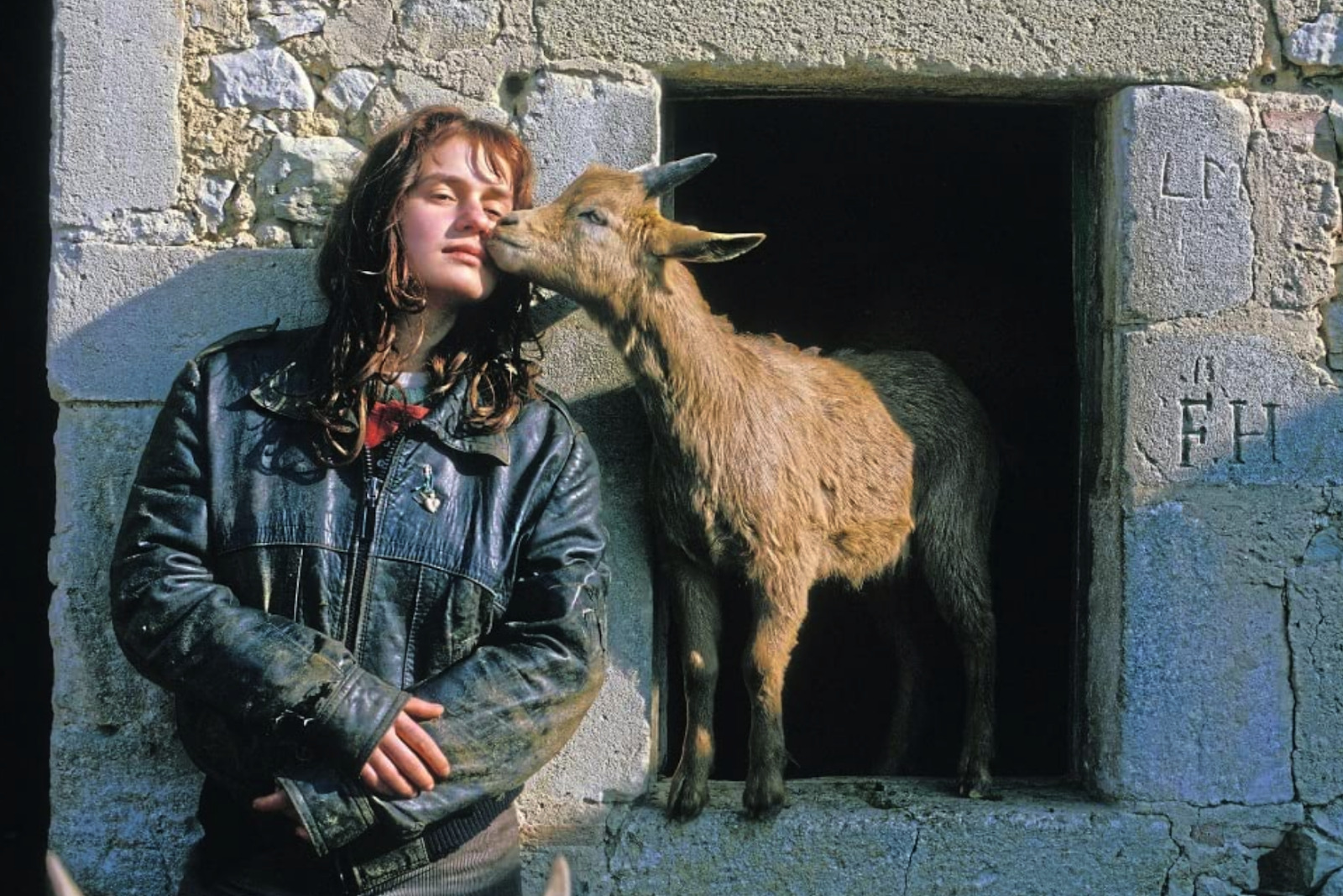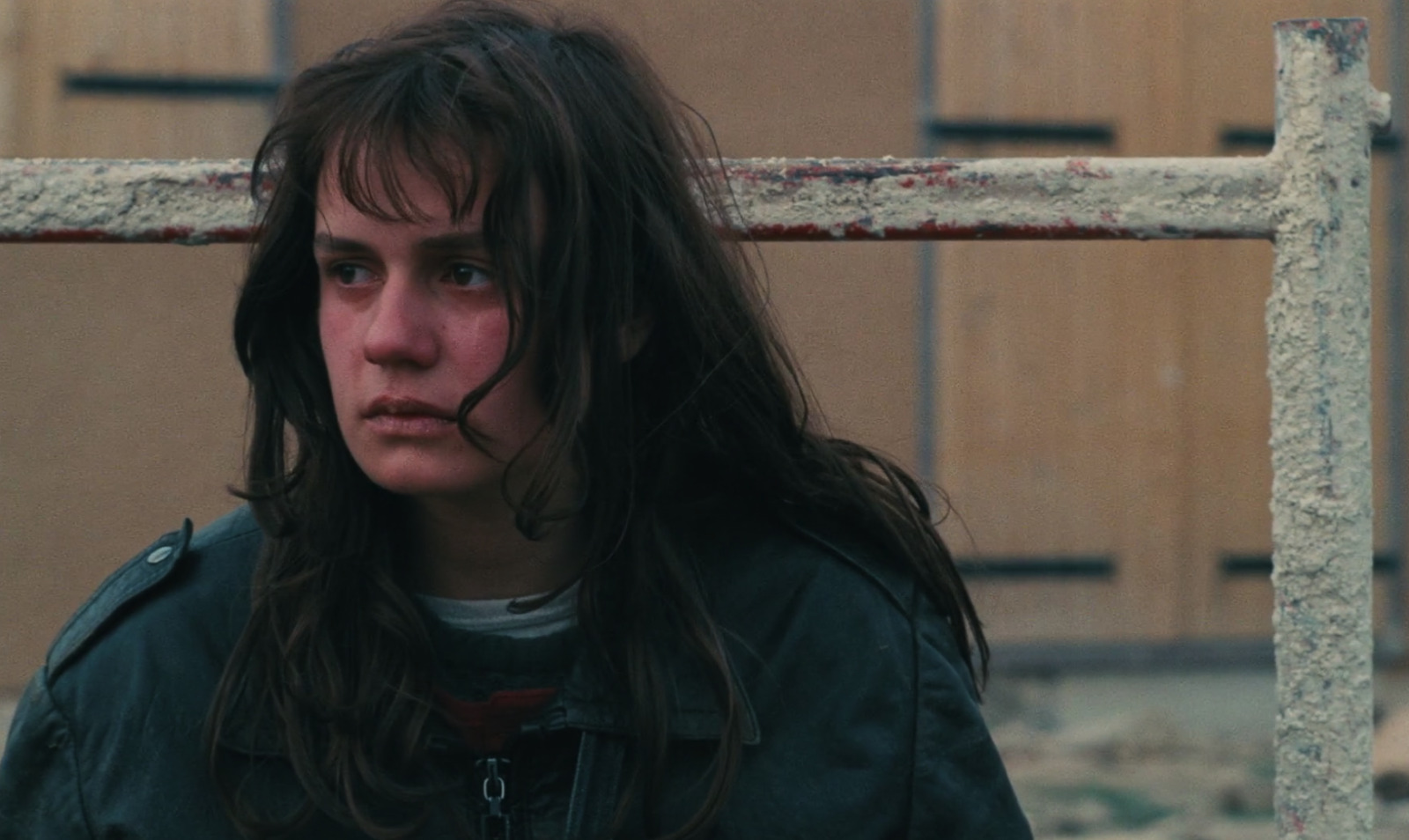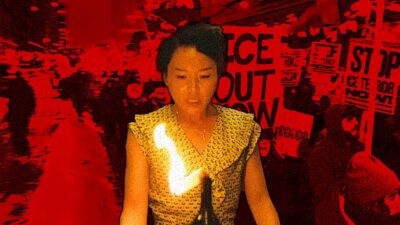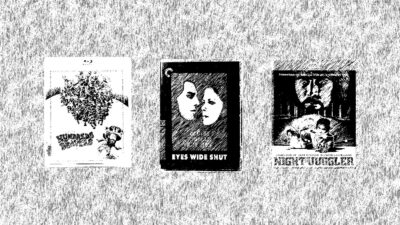In the 1980s, France became home to a generation of young people turning away from conventional society, choosing to live “sans toit, ni loi,” without a roof, without law. Dropping out for a life on the road, this wave of alternative youth appeared to represent an experience that went beyond rebellious degeneracy. For Agnés Varda, the vagabond lifestyle became a subject that juxtaposed the ideas of liberty and filth in her film SANS TOIT, NI LOI. A testament to the feeling of invincibility of youth, SANS TOIT, NI LOI captures the essence of freedom in solitude and its inevitable relationship with existential loneliness in a portrait of its controversial protagonist, Mona.
Played by 17-year-old Sandrine Bonnaire, Mona is a young vagabond on her own who never says thank you and smells awful. We first meet Mona frozen to death in a ditch with nothing to identify who she was. The rest of the film becomes a fragmented portrait of how Mona lived and how she behaved, filling in the blanks of the anonymous body she left behind. The idea of the person Mona was is composed entirely by the interwoven memories of those she had encountered along the road, their projections of her thrown onto her legacy with every ounce of disdain, pity, and jealousy that each person brings to her story.

There’s a clear dissonance between the men and the women who recount their experiences with Mona. Most of the men seem to dislike her for her crude nature and headstrong ways despite her cute looks. They all seem frustrated with her inability to settle, whether it be for a job, for love, or for responsibility—they’re frustrated and intimidated that they couldn’t pin her down. The women, although put off by her scent, seem to admire her autonomy. They like how she appears to know what she wants as an example of what life could be if they just gave in and escaped the confines of traditional society. Among both the men and the women that have passed her by, Mona is seen as an anomaly: othered by everyone. Whether it be her grimy appearance, her putrid stench, or her arrogant attitude, she unapologetically stands out wherever she finds herself.
Varda’s camera takes us backwards in time and space with discontinued tracking shots that move from right to left, which can be jarring to western audiences who are accustomed to reading from left to right. The camera follows Mona across whatever landscape she finds herself against, then lingers on an object or an element that ties her to the local area. Called “traveling discontinue” in French, these discontinued tracking shots both verbally and aesthetically become reflective as the memories that narrate Mona’s final days reflect on her discontinued journey and the people and places she left behind. Paired with music by Joanna Bruzdowicz, these shots tether us to Mona, giving us a unique and intimate glimpse into her day-to-day, bonding us to her.
Mona’s story is understood by how she affected those around her rather than how Mona felt about her own condition. Her character is difficult, if not impossible, to empathize with. We’re given no information about her except that she graduated high school and doesn’t have much of a family. We assume we’re meant to be kept at a distance from her much like the people telling her story. However, only the audience has the privilege to watch her look up with tears streaming down her cheeks at a work site by herself. We never learn or understand why she was crying, but in this single moment among all the shots we get alone with her, Varda welcomes us closer to Mona unlike anyone else.

SANS TOIT, NI LOI is a film that can leave you both hopeless and inspired in the same sitting. In a face-to-face confrontation with our own free will, we can question our complacency in traditional society all we want. As women, we can question our complacency in how our gender dictates our behavior and our choices along our lifetime, forever wondering if we made the right decision to be who we are today. While Mona’s character provokes these questions to float to the surface, her story doesn’t shy away from the harsh reality that this lifestyle brings with it. The liberty of being free from responsibility, living for the free champagne and the road, relying on the kindness of others while all relationships remain temporary—Mona’s final days ring a haunting bell reminding us that we only have ourselves as reliable company. Whether it’s at all comforting to our existential attachment to our greater self, this story forces us to contemplate our relationship to our solitude in not only its essence as a liberating freedom from others, but also in its inevitable exploitation of our own loneliness and the dooming cultural fear of dying cold and alone.















Comments